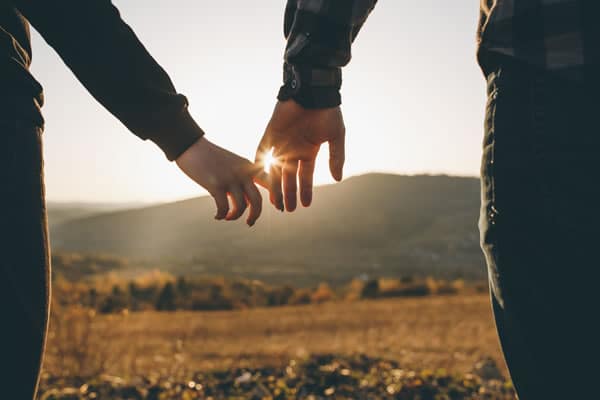Living sober: Are romantic relationships in early recovery a good idea?

Valentine’s Day brings with it thoughts of love, but for those involved in romantic relationships in early recovery, such love can be a sobriety hazard.
There’s a reason, after all, that drug and alcohol treatment programs, both of the professional and self-help variety, warn against romantic relationships in early recovery. And for those navigating those precarious waters, the standard advice of avoiding romantic relationships for the first year is often seen a suggestion that’s optional, to put it mildly.
Even the literature of 12 Step recovery programs like Narcotics Anonymous warn against romantic relationships in early recovery – and acknowledge that such relationships are bound to happen regardless. From the NA book “Living Clean” [1]: “Experienced members suggest that we give ourselves a break for the first year, stay out of relationships, and put our recovery first, but few of us heed this wise advice. We come into recovery lonely, horny, and insecure. We are emotionally raw, and our judgment is still pretty impaired. We run headlong into relationships only to discover how challenging they are.”
Those challenges come in a variety of shapes and sizes, the most grave of which, of course, is the potential for relapse, because as the writers of “Living Clean” go on to point out, two addicts or alcoholics in early recovery are still sick – and “two sick people rarely make a well couple.”
Romantic Relationships in Early Recovery: Replacing One Drug for Another?
 Unless you’ve experienced it yourself, it’s difficult to describe just how intoxicating “love” – especially the infatuation of newfound love in the early stages of a romantic relationship – can be. Why is that? According to a 2017 article on the science news website Live Science [2], there are specific facets of being “in love” that correlates to actual changes in the brain, according to Rutgers University anthropologist Helen Fisher, “one of the leading experts on the biological basis of love”:
Unless you’ve experienced it yourself, it’s difficult to describe just how intoxicating “love” – especially the infatuation of newfound love in the early stages of a romantic relationship – can be. Why is that? According to a 2017 article on the science news website Live Science [2], there are specific facets of being “in love” that correlates to actual changes in the brain, according to Rutgers University anthropologist Helen Fisher, “one of the leading experts on the biological basis of love”:
- Uniqueness: You feel as if the object of your affection is unlike anyone else, and you don’t feel the same sense of attachment to anyone else. “Fisher and her colleagues believe this single-mindedness results from elevated levels of central dopamine – a chemical involved in attention and focus – in your brain,” according to the article.
- You focus on the positive, overlook the negative and attach hefty emotional significance to seemingly mundane objects that remind you of the object of your affections: “This focused attention is also thought to result from elevated levels of central dopamine, as well as a spike in central norepinephrine, a chemical associated with increased memory in the presence of new stimuli.”
- Getting through something difficult with a new romantic partner often intensifies the feelings between the two of you: “Central dopamine may be responsible for this reaction, too, because research shows that when a reward is delayed, dopamine-producing neurons in the mid-brain region become more productive.”
- Spending an inordinate amount of time thinking about your new partner becomes a form of obsession that “may result from decreased levels of central serotonin in the brain.”
- You start planning for a future, which has roots in basic instincts of human nature, according to Lucy Brown, a neuroscientist at Albert Einstein College of Medicine in New York [3]: “Functional MRI studies show that primitive neural systems underlying drive, reward recognition and euphoria are active in almost everyone when they look at the face of their beloved and think loving thoughts. This puts romantic love in the company of survival systems, like those that make us hungry or thirsty.”
- And finally, for those individuals in romantic relationships in early recovery, this is the big one: “You bounce between exhilaration, euphoria, increased energy, sleeplessness, loss of appetite, trembling, a racing heart and accelerated breathing, as well as anxiety, panic and feelings of despair when your relationship suffers even the smallest setback. These mood swings parallel the behavior of drug addicts. And indeed, when in-love people are shown pictures of their loved ones, it fires up the same regions of the brain that activate when a drug addict takes a hit. Being in love, researchers say, is a form of addiction.” [2]
So Is Love a Drug?
 It’s impossible, of course, to quantify love as a drug in the addiction-and-alcoholism-treatment sense of the word. Love isn’t an external mind- or mood-altering chemical that is consumed in the form of a drink or a pill or an intravenous injection. However, for those in romantic relationships in early recovery, it can often function in much the same manner.
It’s impossible, of course, to quantify love as a drug in the addiction-and-alcoholism-treatment sense of the word. Love isn’t an external mind- or mood-altering chemical that is consumed in the form of a drink or a pill or an intravenous injection. However, for those in romantic relationships in early recovery, it can often function in much the same manner.
In fact, once newly minted recovering addicts and alcoholics begin to work on themselves in their various recovery programs, they often see that there hasn’t been a great deal of distinction between physical drugs like heroin or cocaine, and love, as recovery advocate Chris Boutte writes in an article for the website Medium [4]: “We had this void within us that we couldn’t explain, so we’d try to fill it with drugs and alcohol. All of my loneliness, insecurities and sadness could be suppressed with my abuse of mind-altering substances, but they eventually stopped working.
“As with my moment of clarity about drugs and alcohol, I had to sit back and think about what else I was using to fill this void, and the answer was women. I realized that I had issues with being alone. Dating someone made me feel loved, wanted and cared for. If I wasn’t dating someone, I felt extremely alone and sad. I had no clue how to be content being single.”
However, without the security blanket of drugs and alcohol to assuage the discomfort of being single – a.k.a. being alone – a new relationship is often thing individuals navigating the waters of early sobriety turn to as a means of easing that loneliness. And that, according to the website RelationshipVision.com [5] – a relationship training and therapy website – is often a recipe for disaster. Why? Because we’re still new enough to sobriety that we haven’t learned healthy relationship skills yet, which means we’re drawing on ones that we used in the past – often to deleterious effect – to make these romantic relationships in early recovery work.
“Despite one’s best laid plans or intentions to not re-enact the same dysfunction and failures of previous relationships, the odds are overwhelmingly against the relationship – doomed to be dysfunctional or have a shortened life expectancy,” according to the website.
In other words, add the writers of “Living Clean” [1], “We mistake novelty for love and find ourselves deep in commitment almost before we know each other, or fear commitment so much that we don’t give our partner a chance. We open the door for relapse when we get caught in loops of obsession and compulsion.”
Romantic Relationships in Early Recovery: What About Sex, Baby?
 As the writers for RelationshipVision.com point out, it’s not so much the romantic relationships in early recovery, per se, as it is the physical relationships that often follow suit: “Sex tends to increase one’s level of emotional involvement and intensity of feelings, especially for women. Men tend to cope by splitting off from their feelings; that is, are more likely to engage in sexual relationships while remaining emotionally divorced or superficial. Sex is a trigger for emotional over-involvement or under-involvement relative to the stage of relationship. Either way, each one’s inability to manage his/her own emotional needs and provide self-nourishment will eventually jeopardize the developing relationship.”
As the writers for RelationshipVision.com point out, it’s not so much the romantic relationships in early recovery, per se, as it is the physical relationships that often follow suit: “Sex tends to increase one’s level of emotional involvement and intensity of feelings, especially for women. Men tend to cope by splitting off from their feelings; that is, are more likely to engage in sexual relationships while remaining emotionally divorced or superficial. Sex is a trigger for emotional over-involvement or under-involvement relative to the stage of relationship. Either way, each one’s inability to manage his/her own emotional needs and provide self-nourishment will eventually jeopardize the developing relationship.”
Dr. Alan Brandis, writing for Atlanta Area Psychological Associates [6], elaborates: Addicts and alcoholics new to recovery often have a history of failed relationships that were built on the premise that sex equals intimacy. Some individuals have no idea how to differentiate between the two, because the relationships that were modeled to them by parents and adults in their lives were dysfunctional as well. Still others new to recovery struggle with sexual hang ups, sexual abuse issues, sexual identity confusion and more – which makes sex an entirely separate entity from a romantic relationship: “Searching for the closeness of an intimate relationship, many people try to make it happen by having sex, before building a close relationship with the partner. This approach never works because it only creates the illusion of intimacy which soon fades, leaving the partners feeling frustrated and deprived.”
In other words, sex can meet our immediate needs, but in the rush for instant gratification, we engage in old habits and behaviors that can leave us feeling dirty – not because sex is dirty, but because we have pursued it in a manner that doesn’t comport with our newly developing sense of values as a human being who no longer lives on self-will run riot. In those moments, when we realize that we’ve channeled the old behaviors we’re trying to desperately to rid ourselves of, we often come to a realization that can make or break our recovery journey, according to the writers for “Living Clean”:
“Each mistake carries a gift and a hazard: We can learn from our mistakes and use them, or let our guilt and remorse drive us into a corner or out of the program. The more practice we get at using the Steps and other tools of recovery, the more we are able to use our mistakes to propel us forward.”
Often, addicts and alcoholics new to the recovery process don’t see the distinction between intimacy and sex until they begin to take the inventories discussed in Step Four of various 12 Step programs. But the framers of Alcoholics Anonymous, the first 12 Step program, had a keen understanding of the role that alcohol played in the sexual relationships of those who sought to get sober and repair the damage done in their lives [7]: “We earnestly pray for the right ideal, for guidance in each questionable situation, for sanity, and for the strength to do the right thing. If sex is very troublesome, we throw ourselves the harder into helping others. We think of their needs and work for them. This takes us out of ourselves. It quiets the imperious urge, when to yield would mean heartache.”
To Date or Not to Date: That Is the Question
 Writing for the recovery website The Fix [8], Emily Glover points out that the advice of avoiding romantic relationships in early recovery is sound based on “the idea is that it’s necessary to come to terms with your own emotions – without the distraction of a new romantic partner and the potential pitfalls that go along with romance. As many have discovered, however, following that advice is easier said than done.”
Writing for the recovery website The Fix [8], Emily Glover points out that the advice of avoiding romantic relationships in early recovery is sound based on “the idea is that it’s necessary to come to terms with your own emotions – without the distraction of a new romantic partner and the potential pitfalls that go along with romance. As many have discovered, however, following that advice is easier said than done.”
And it’s certainly not a deal breaker for any sort of recovery program: After all, one of the 12 Traditions, a companion list of suggestions that guide how individuals in recovery relate to one another and the outside world, plainly states: “The only requirement for membership is a desire to stop” partaking of the particular substance that brought you to recovery. While many sponsors – recovery mentors, so to speak – may ask those who seek their experience, strength and hope to avoid such relationships for a while, still others understand that the basic human need for connection doesn’t mean that those in recovery should adopt a monastic way of life: As Boutte points out [4], “when I asked my sponsor about not dating my first year of sobriety, he looked me in the eyes and said, ‘Well, it doesn’t say that anywhere in the Big Book.’ So, my sponsor who is a Big Book thumper was telling me that although people suggest it, there’s nothing in the program of recovery that’s outlined in the Big Book that says otherwise.”
As Danyelle Smith – LPC-MHSP, NCC, MA and a therapist with the drug and alcohol treatment center Cornerstone of Recovery – points out, romantic relationships in early recovery can actually help individuals navigate life on life’s terms, which is the goal of the recovery process in the first place.
“It’s working your recovery and working your Steps daily,” she says. “We want them to have healthy relationships and to move on from the types of relationships they had before, but it must be done in moderation and in ways where we learn boundaries, prioritizing our time and self-care. Telling them not to get in a relationship is like telling them not to go back to school to get more educated. It’s like telling them not to start a new friendship with someone you meet at a (12 Step) meeting. Being in relationships is learning how to be healthy.”
The key, she adds, is perspective: A date isn’t a marriage proposal, and a romantic relationship isn’t a lifelong commitment. That doesn’t mean they should be entered into frivolously, but by the same token, assigning them an undue amount of importance, especially when measured against other areas of life in recovery, can be a pitfall.
“I don’t think you need to be making major life changes in the first year of recovery, but that can mean a lot of things: marriage, leaving home, moving to another state, whatever it may be,” she said. “Relationships should be considered in moderation, and through working the Steps.”
And, she added, sometimes moderation may mean avoiding them altogether. Individuals with a history of poor relationship choices, or those who have used relationships as a means of filling an emotional void in the same way that alcohol and drugs did, should be wary of new romantic entanglements without working on themselves first.
“It is knowing yourself and focusing on yourself and your recovery and self-care first,” she says. “It’s making sure everything is in moderation and that your life is not out of balance. I tell my patients to ask themselves three questions before making any important decision or trying anything new in their lives, because it helps them avoid a lot of trouble.”
Romantic Relationships in Early Recovery: Some Tips
 So what are those three questions? Simply put, according to Smith:
So what are those three questions? Simply put, according to Smith:
- “How does this affect my recovery in the short-term – right now and tomorrow?”
- “How does this affect my recovery long-term?”
- “What am I getting from this – is it an unmet need, or is it empowerment?”
“I tell them to reflect, and to put it all on a calendar – and if they stand back and see how much of their free time away from work they’re spending on the phone with the other person, how much time they’re thinking about them, how much time they’re spending with them … if it’s more than what they’re spending in meeting, or with their sponsor, or in practicing self-care or exercising or with their spirituality, then they’re out of balance,” she says. “And that’s a high risk for relapse. It means they’re making the relationship an addiction and replacing the relationship (with drugs or alcohol) that they just stopped with this new (romantic) relationship.”
Smith’s questions align with Glover’s several tips for relationships in early recovery [8]:
- Know yourself: She consulted with marriage and family therapist Brooke Novick, who points out that it’s important “to be honest with yourself about your emotional and mental preparedness. Along with asking if your recovery has a solid enough foundation, she advised considering if you have the necessary tools to cope with the uncomfortable feelings any relationship can bring to the surface, such as jealousy, fear, sadness and anger.”
- Evaluate your past relationships: If you’ve engaged in “destructive relationship habits” in the past, or you’ve entered into relationships with individuals who aren’t emotionally healthy, that’s probably a good sign that waiting is better.
- Don’t overlook warning signs: In the past, when your judgment is compromised by alcohol and drugs in addition to your own issues, troublesome traits in your partner may have been dismissed or ignored altogether. Do something different this time around. According to Novick: “It’s important to find a person you can resolve conflict with in a healthy manner. Someone who communicates honestly, and gently, can be a wonderful partner.”
 Be up front about your recovery, and especially the need to put it first. In addition, Smith adds, take an honest look at what this particular relationship gives you: “Is it the same high I was getting from addictive behavior before, or is it empowering? What payoff am I getting?”
Be up front about your recovery, and especially the need to put it first. In addition, Smith adds, take an honest look at what this particular relationship gives you: “Is it the same high I was getting from addictive behavior before, or is it empowering? What payoff am I getting?”- Take it slow: Give yourself plenty of room to continue the self-improvement work encouraged and nurtured by your recovery program, and don’t let a new relationship consume you or dominate your time.
- Always keep in mind: Regardless of what happens, you’ll be OK, if you want to be OK. “Someone in recovery going through a breakup may have intense urges to use, so it’s crucial they stay connected to the program,” Novick said. “Know the uncomfortable feelings will lessen and pass with time. Take everything just one moment at a time.”
- Finally, Smith suggests, communicate with those in your recovery network. Talk to your sponsor and your support system, about the relationship itself and the issues that will inevitably arise when you embark on a new emotional adventure. It’s important to rely on those you trust to help you see what you can’t, provide a sounding board for problems and call you out when you can’t see how you may be in the wrong.
So are romantic relationships in early recovery a good idea? A bad idea? The answer depends on the individual, but the reality is this: As human beings, we crave connection. It’s an innate need built out of biological urges, but as with all things in recovery, moderation is the key – as is self-awareness, honesty, open-mindedness, accountability and a whole host of other spiritual principles that are intricately intertwined with addiction recovery.
“We’re meant to connect with other people. We’re not meant to be alone, but it’s learning how to do that in a healthy way – and that’s what recovery is,” Smith says. “We were not created to be alone, and we all have that inward desire to connect at a deeper level.”





